22
Nov
2022
Receipts for BMS Ep 254: Kark Marx Was Kind of a Big Deal
Here is the link to my podcast critique of Phil Magness’ promotion of his paper, co-authored with Michael Makovi, on Karl Marx. In this episode I allude to many things, some of which I document below, so listeners can see I’m not putting words in anyone’s keyboard.

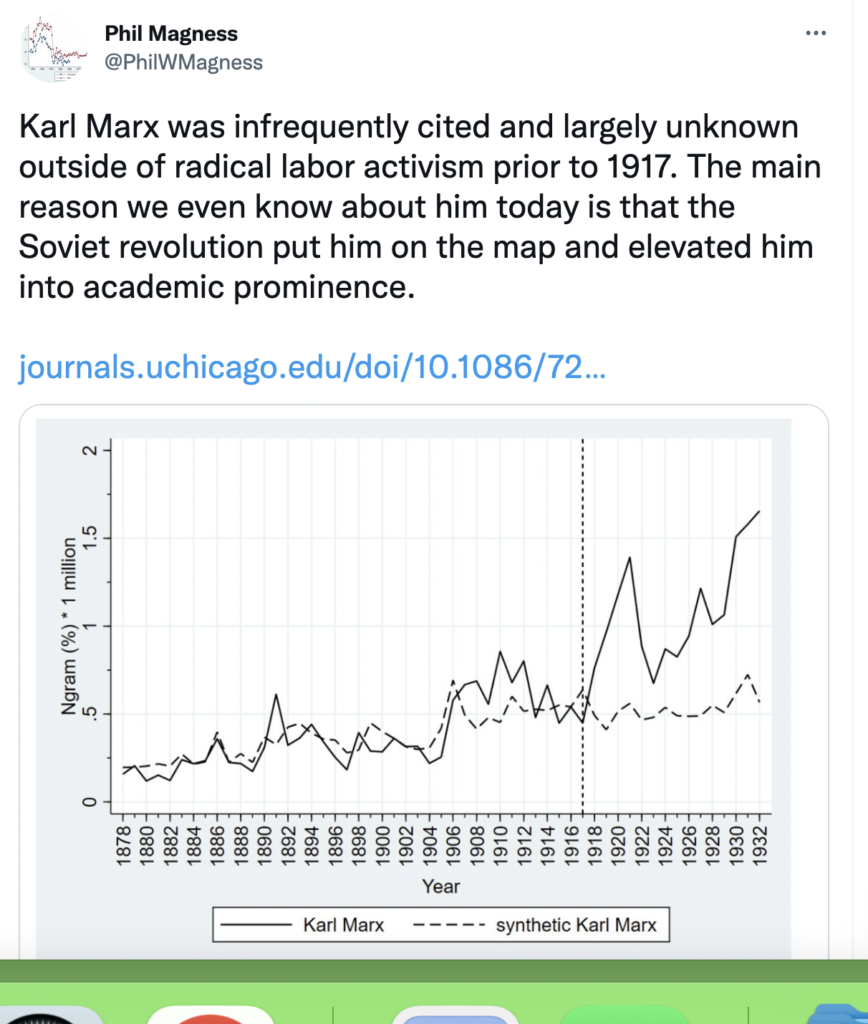
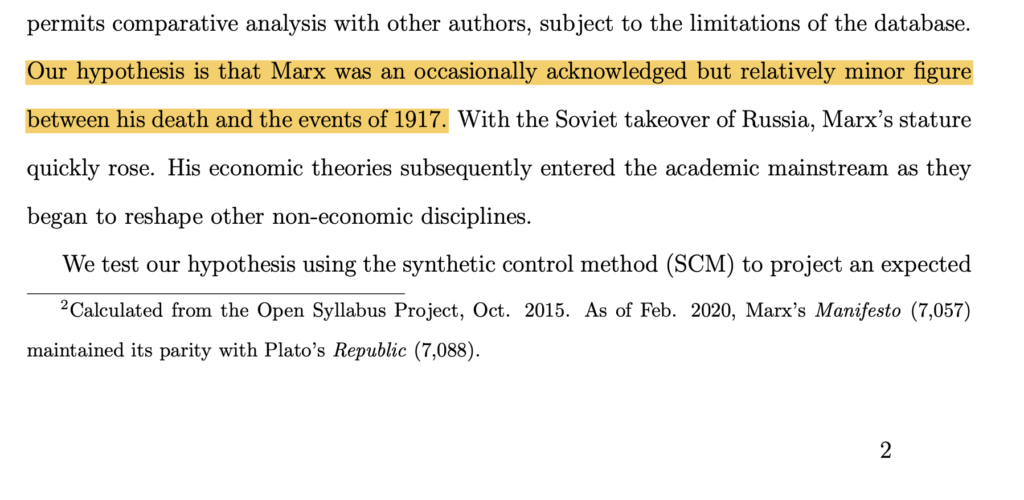

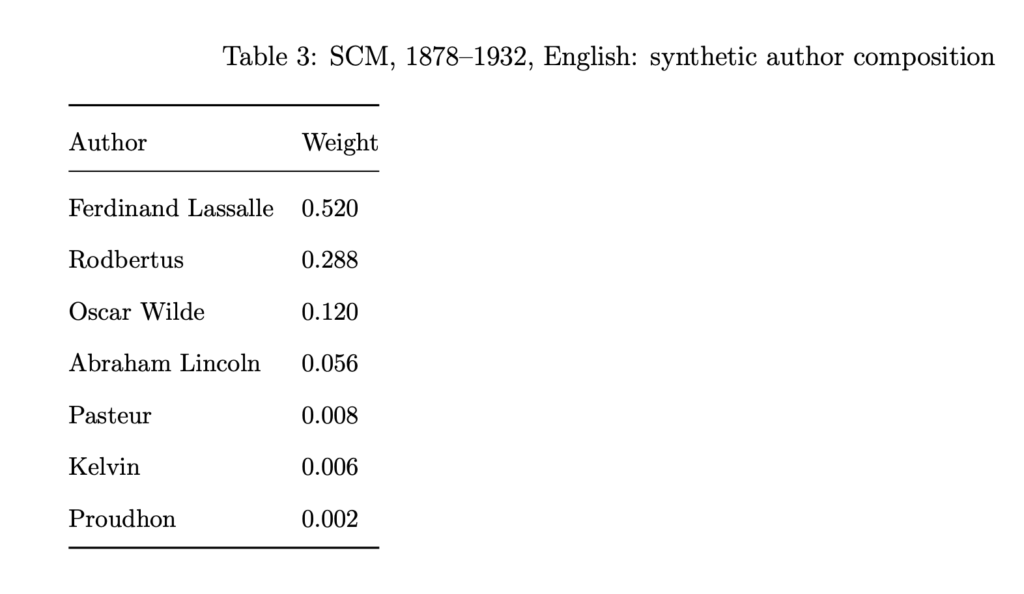
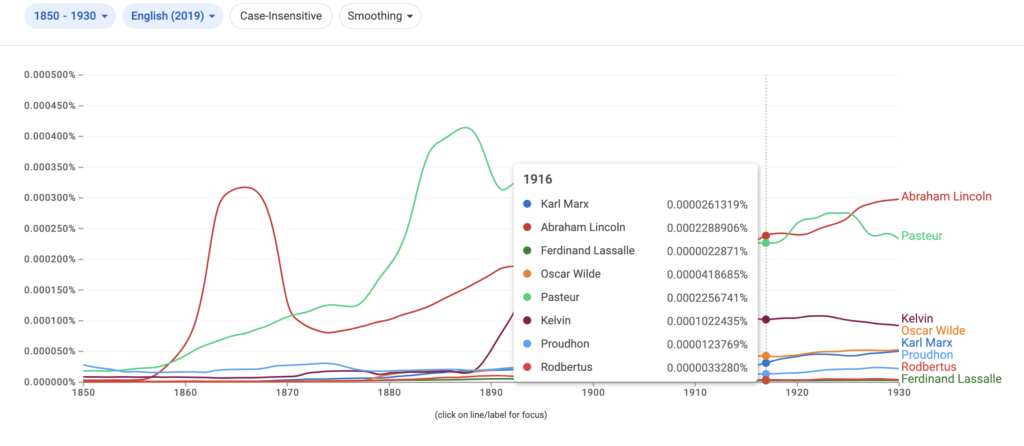
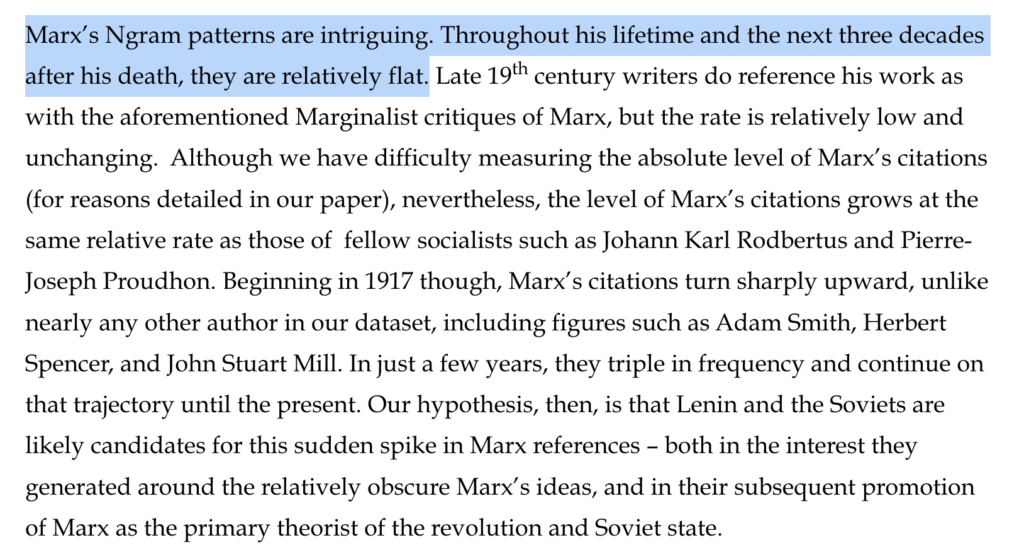
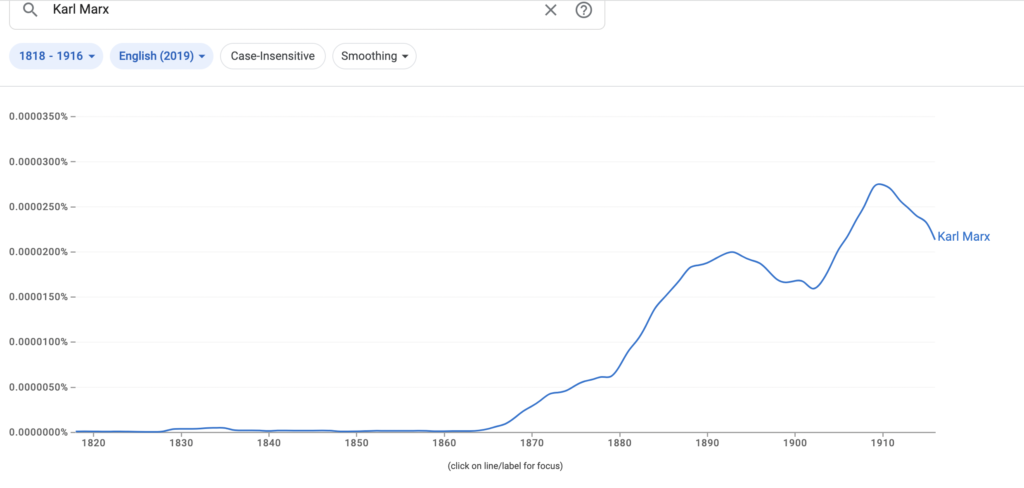
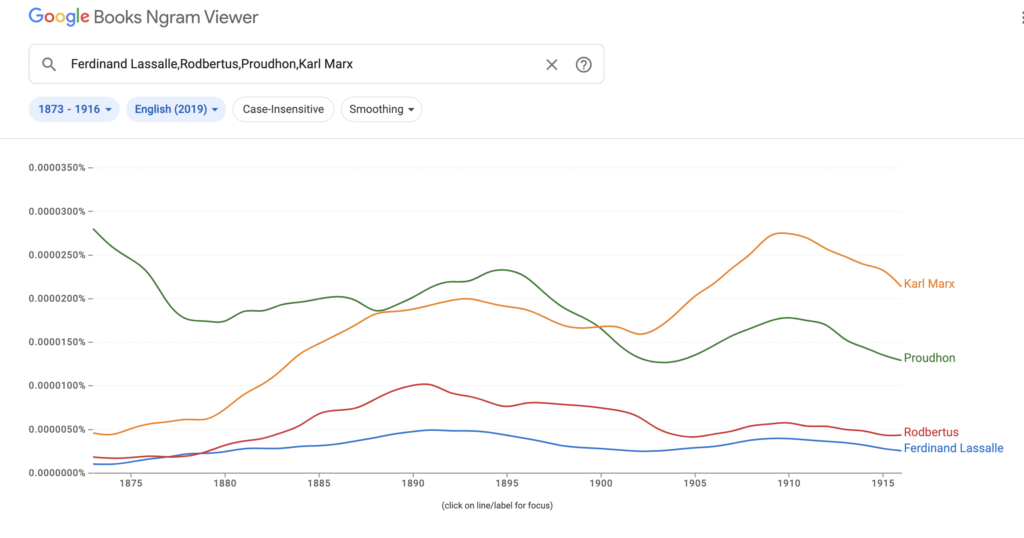
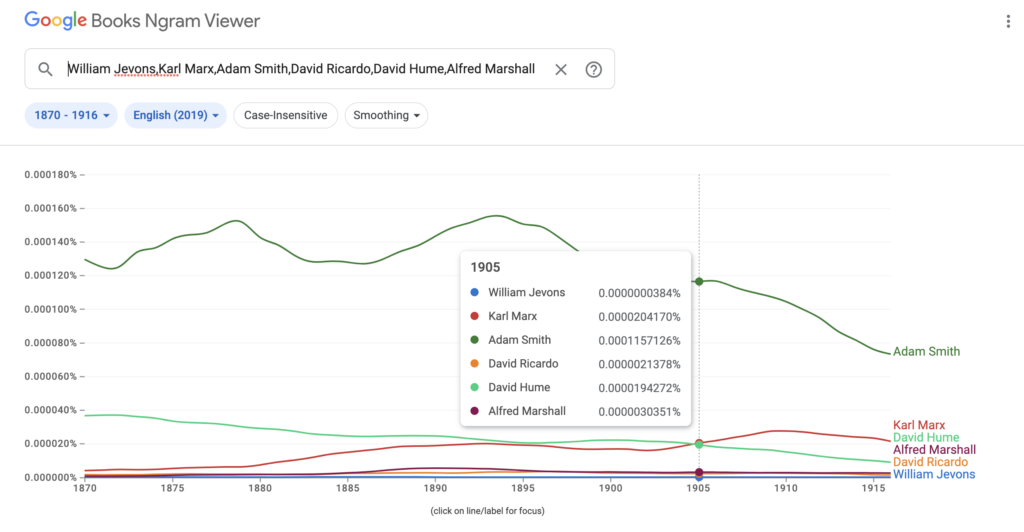
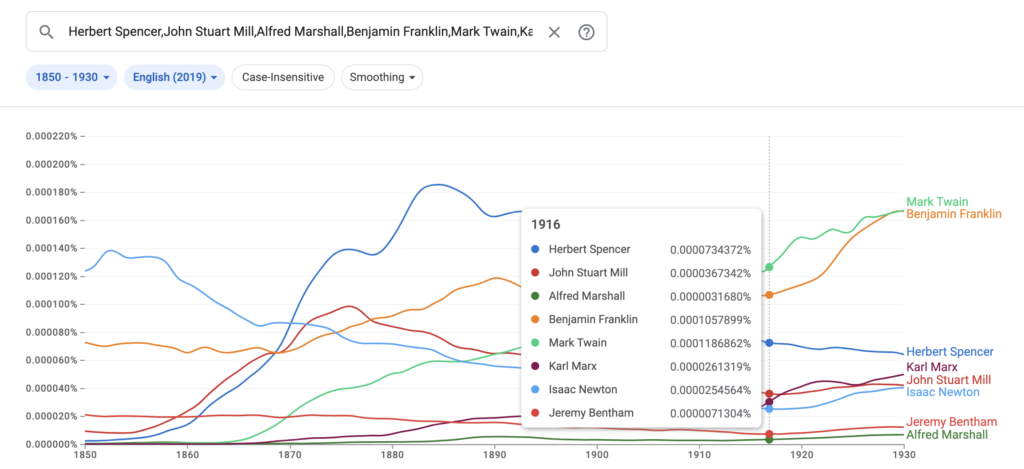
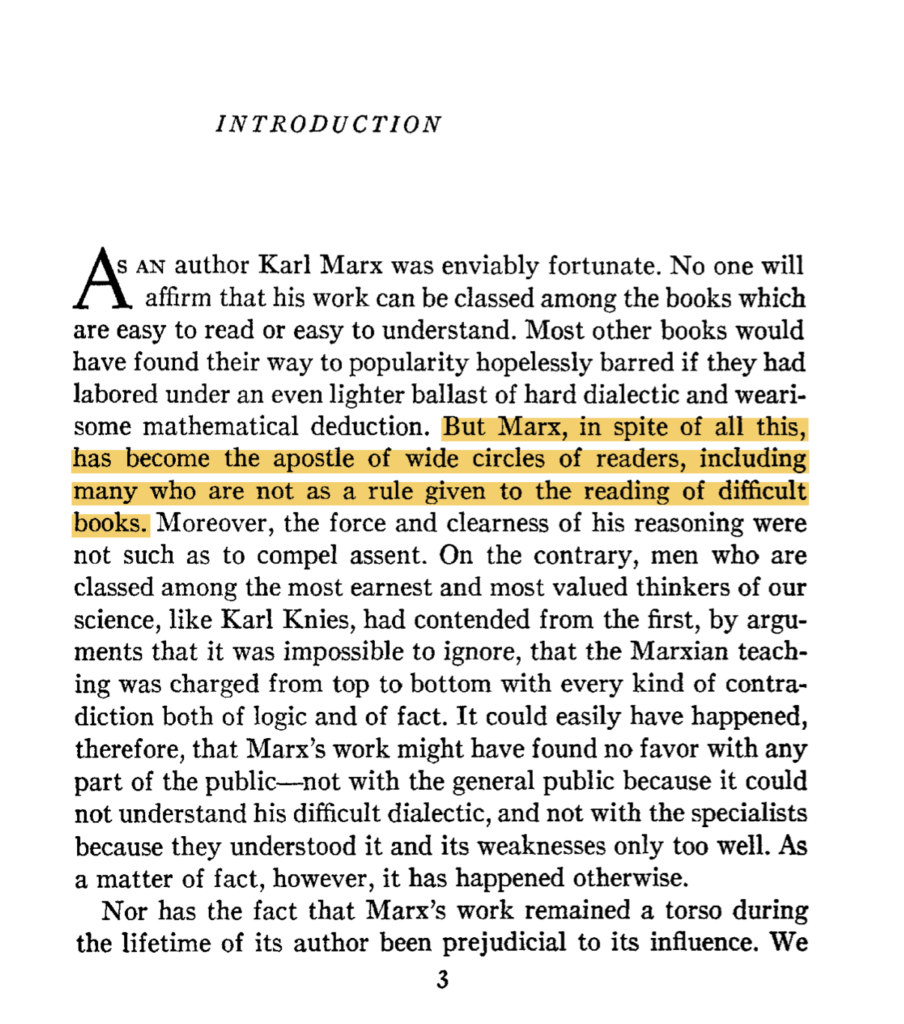
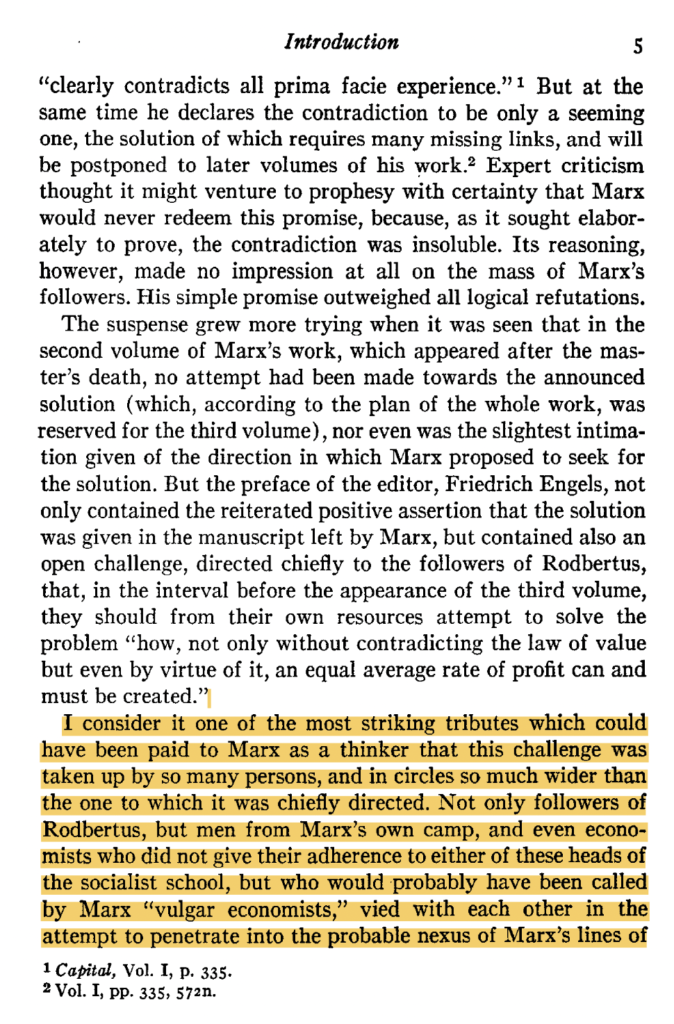
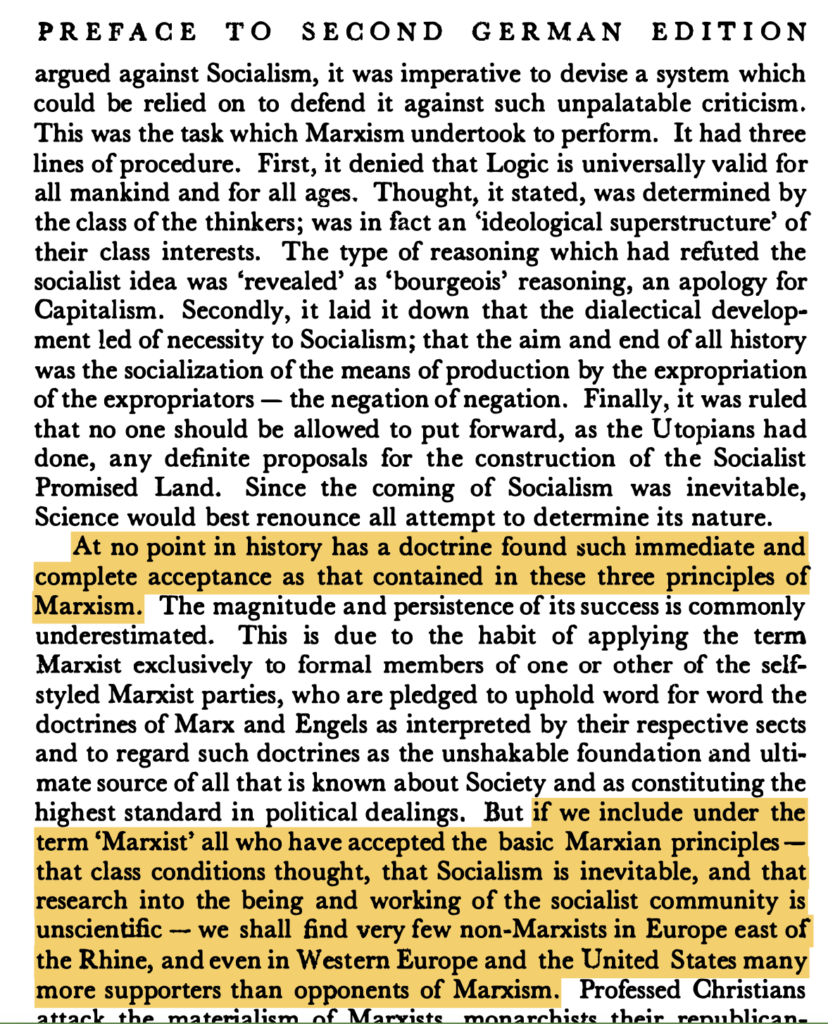

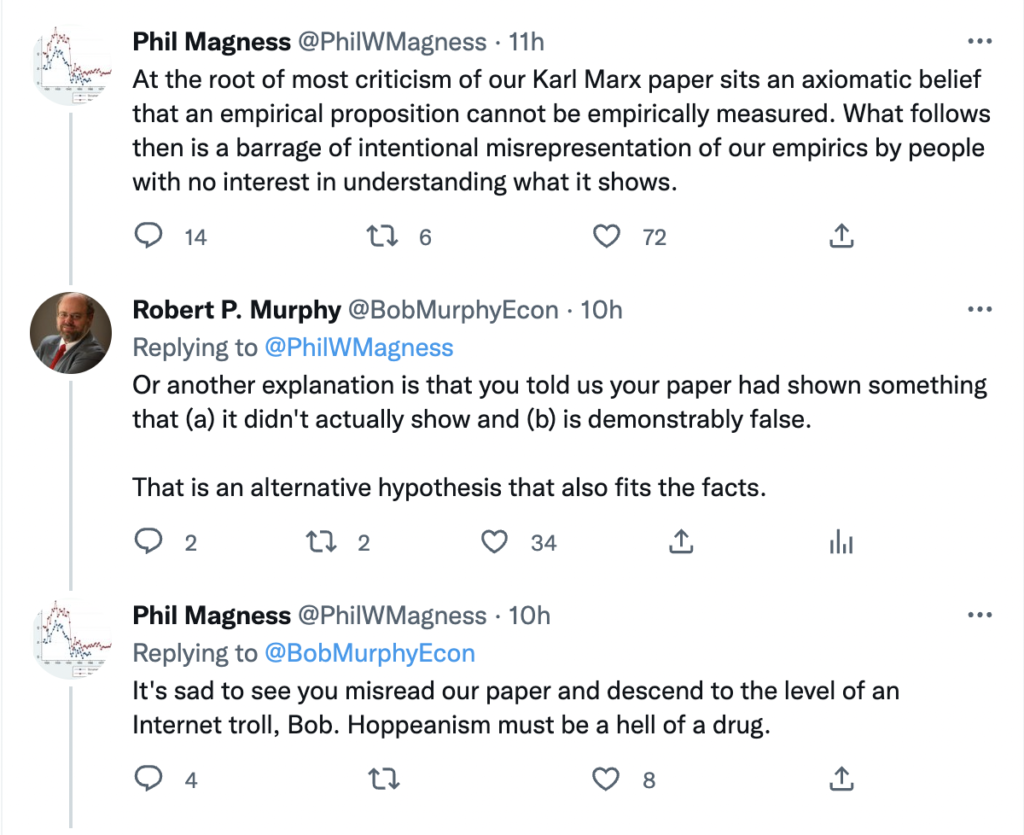
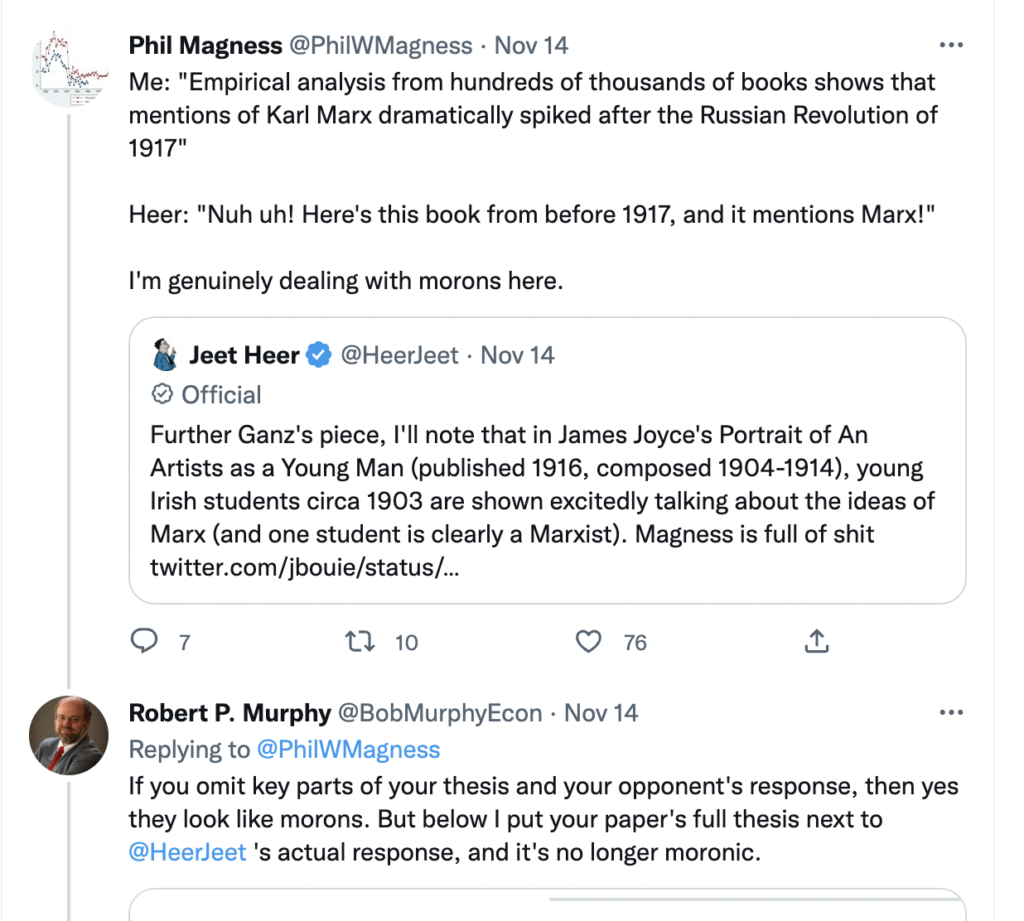

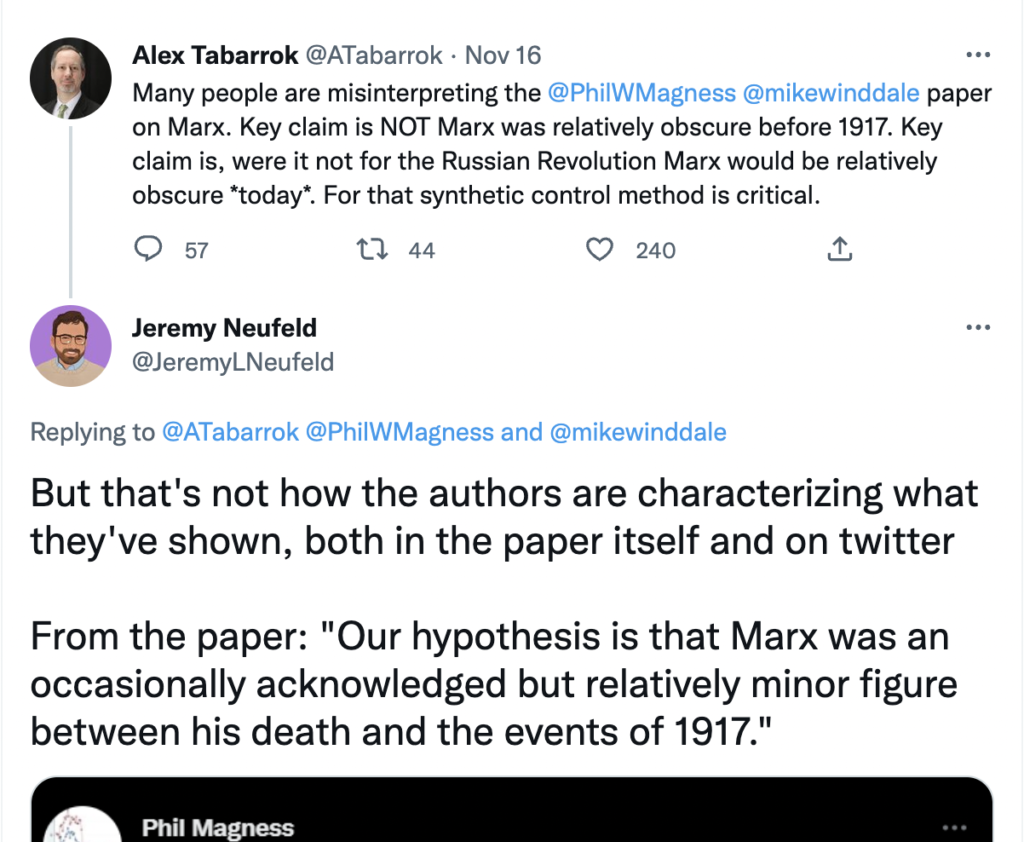
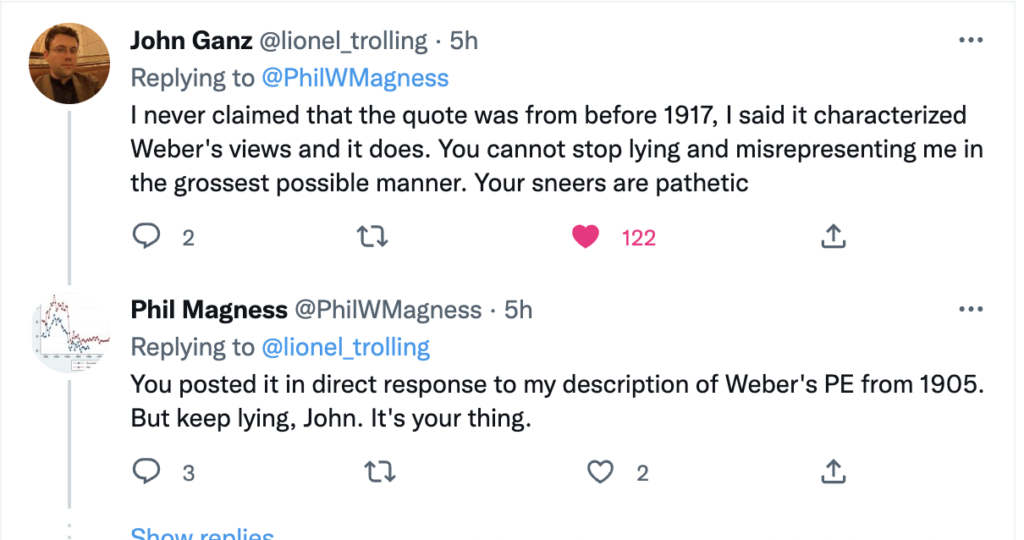
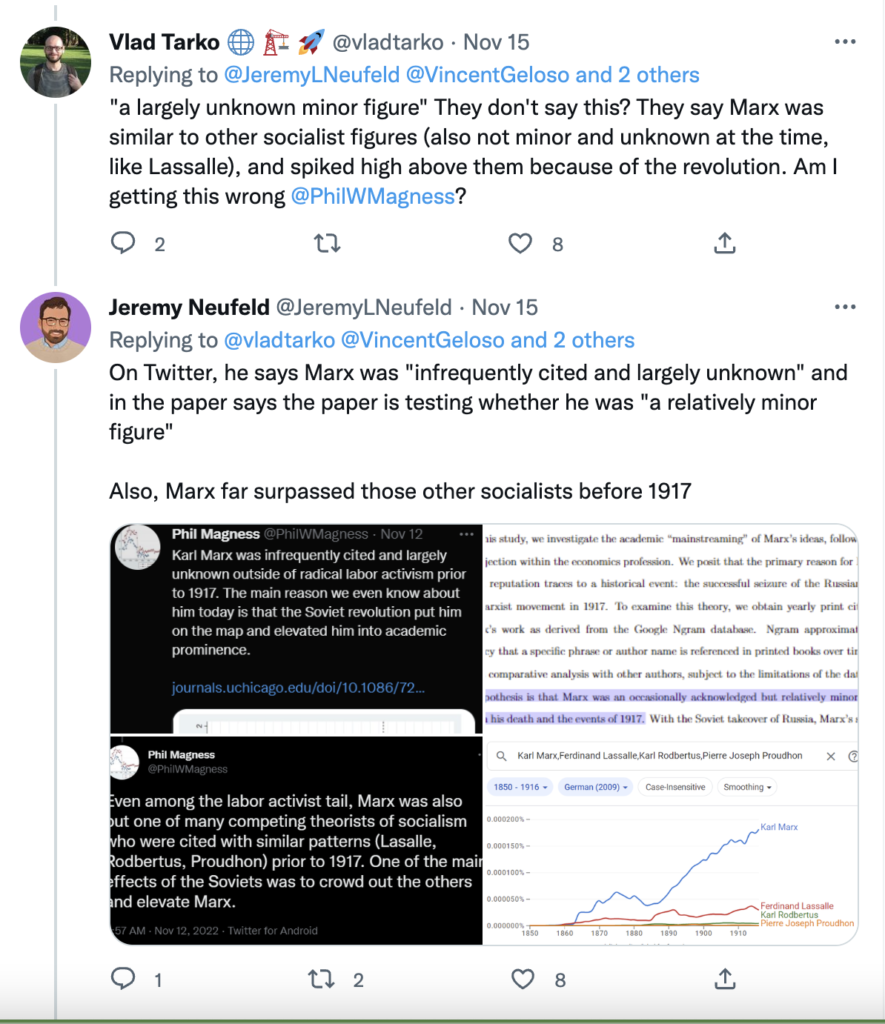
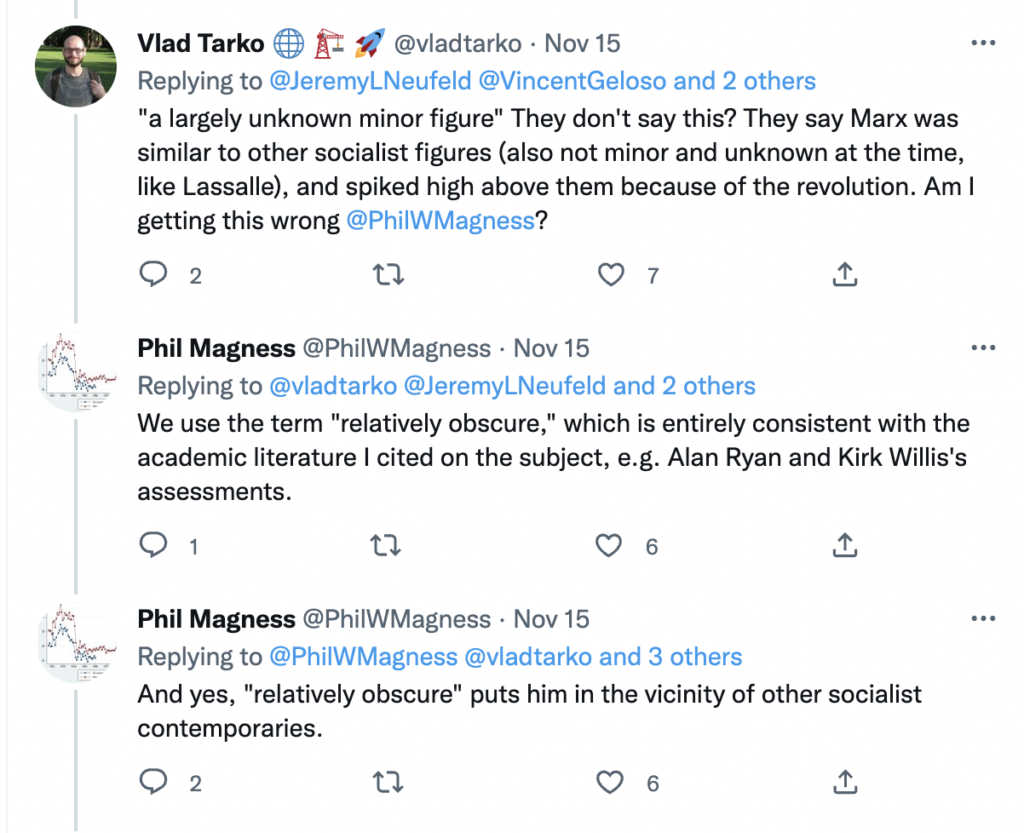
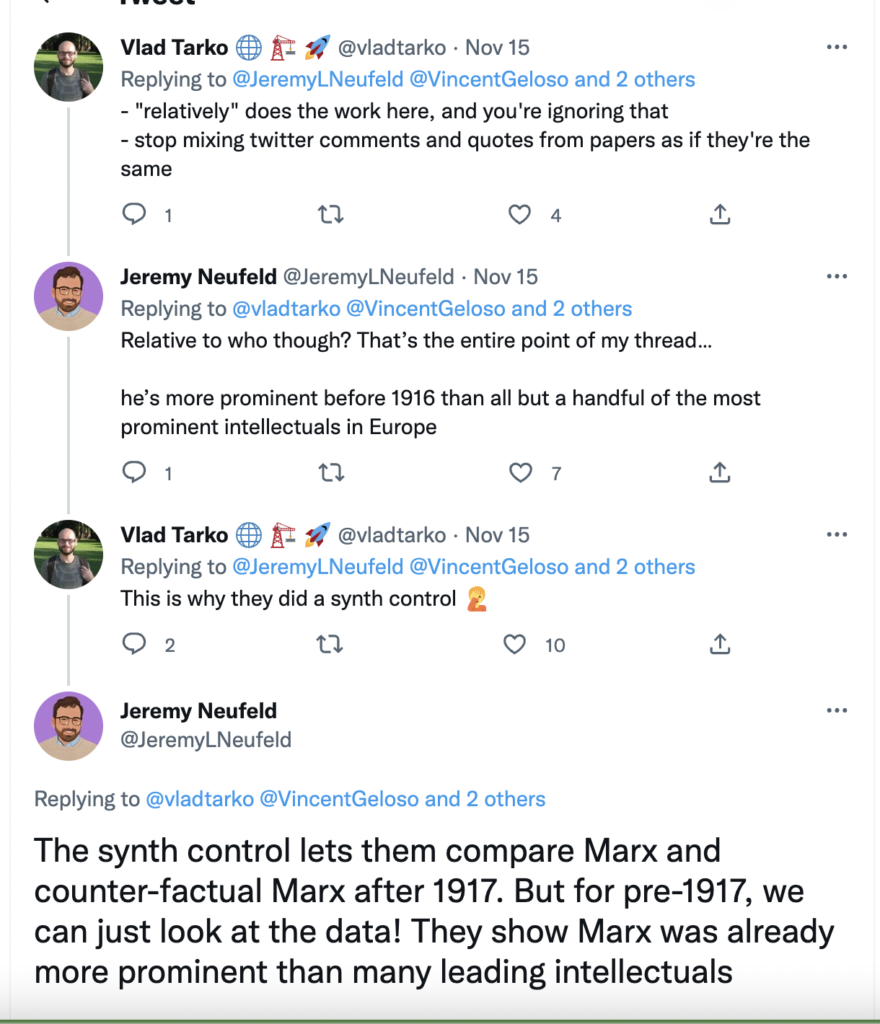

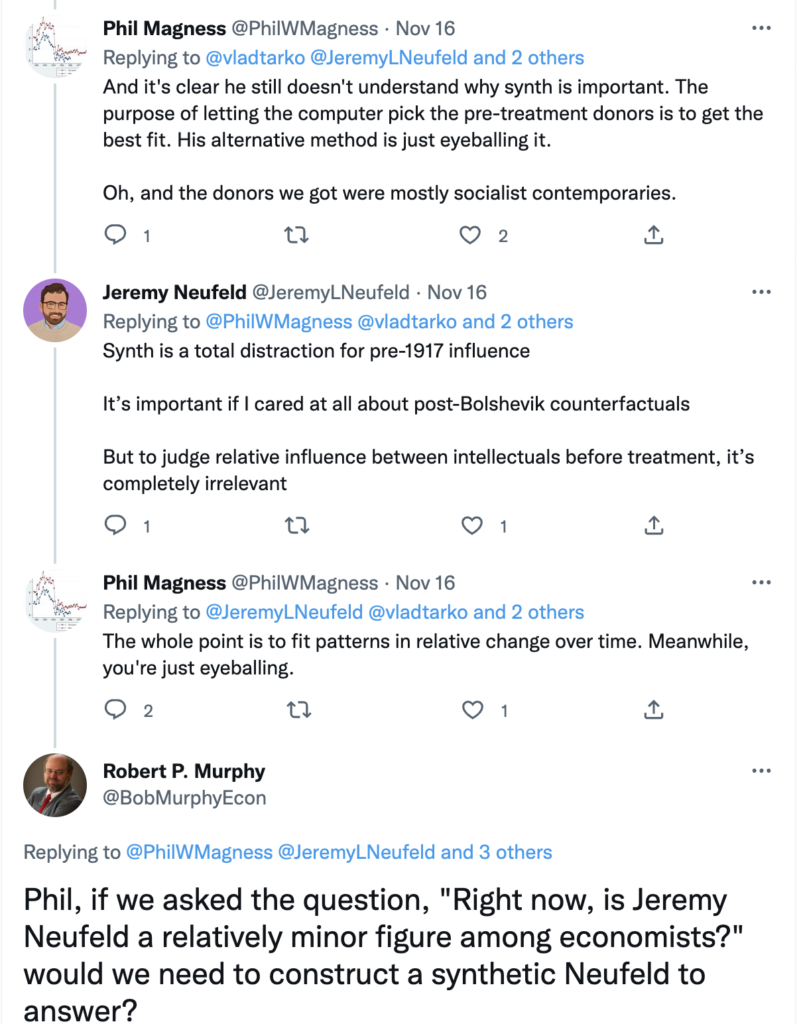
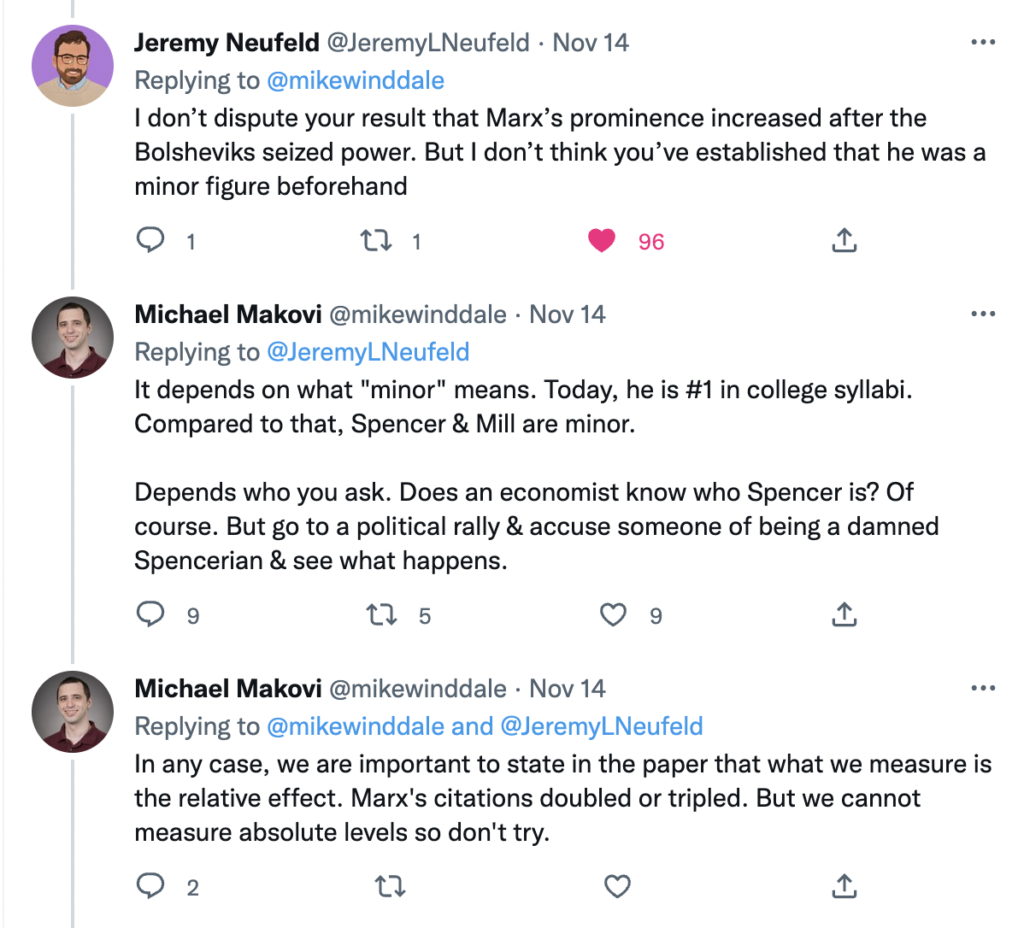
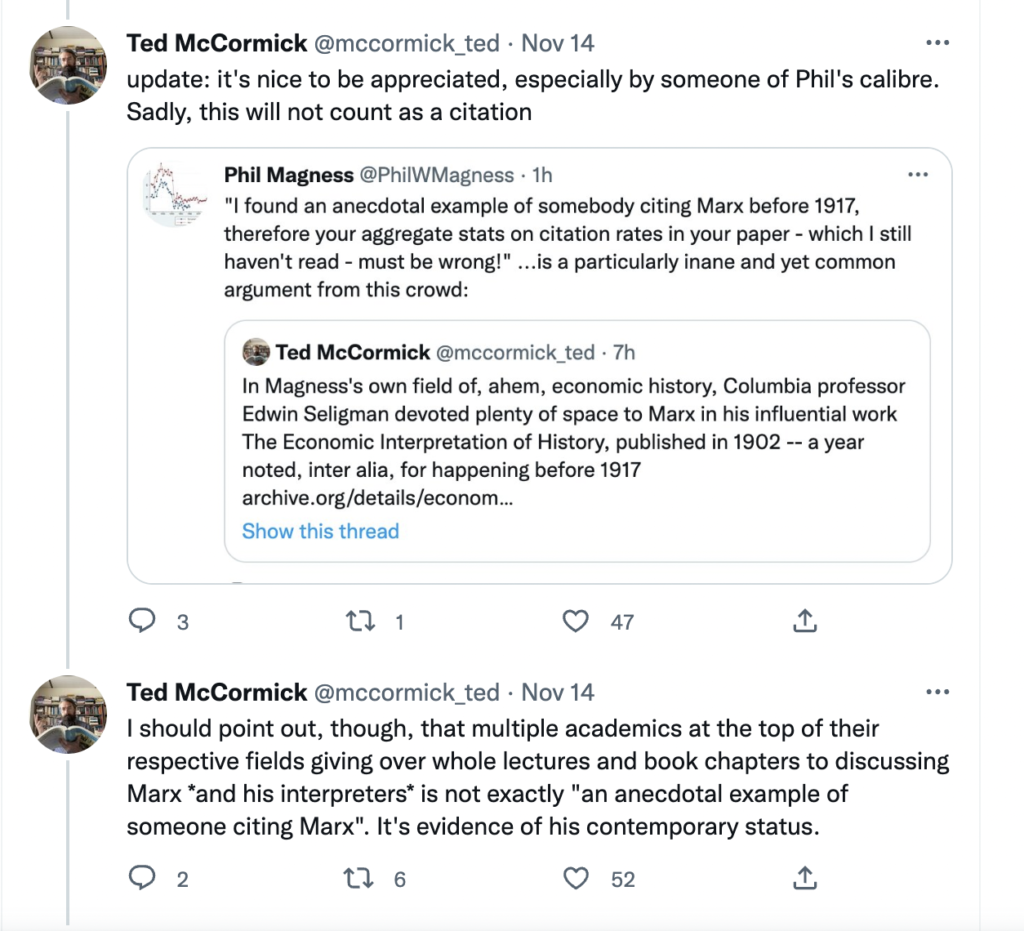

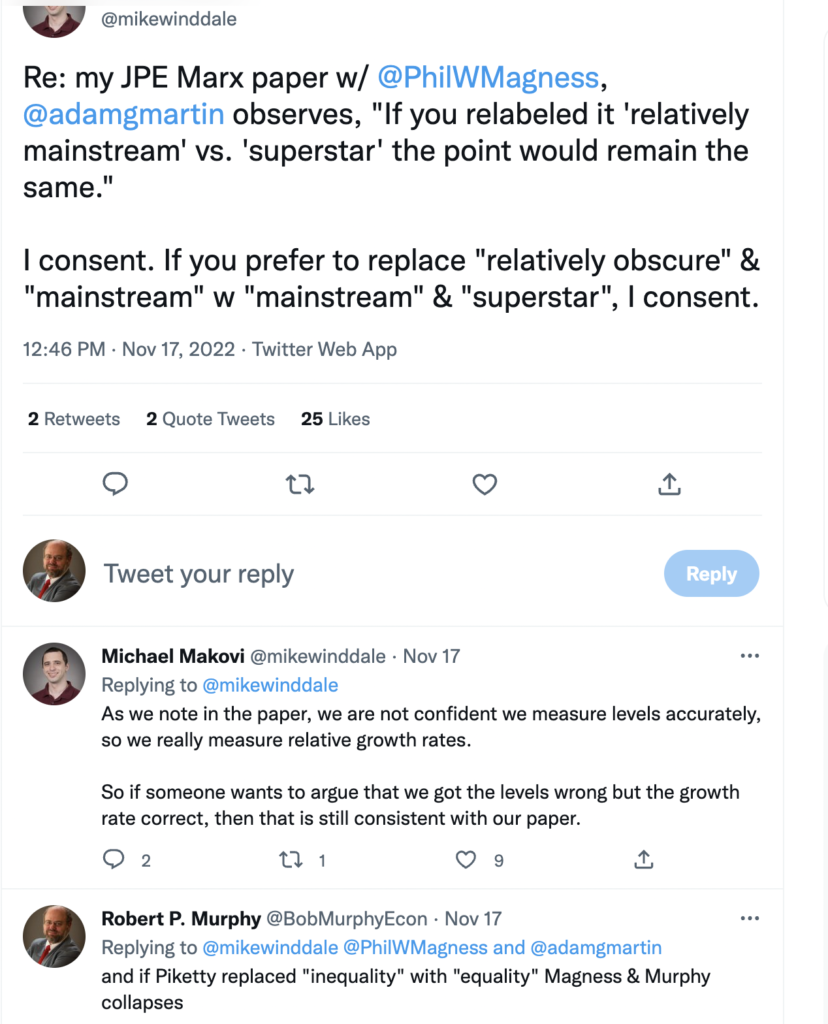
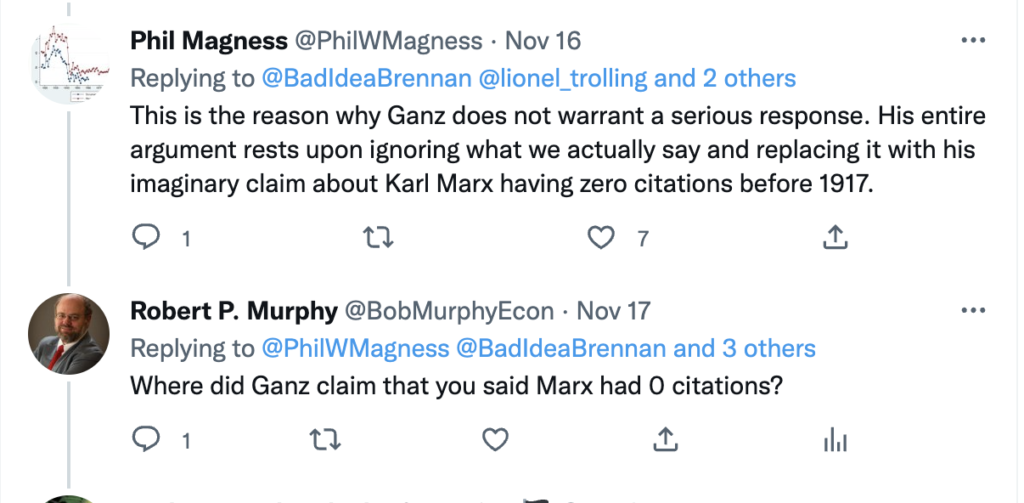
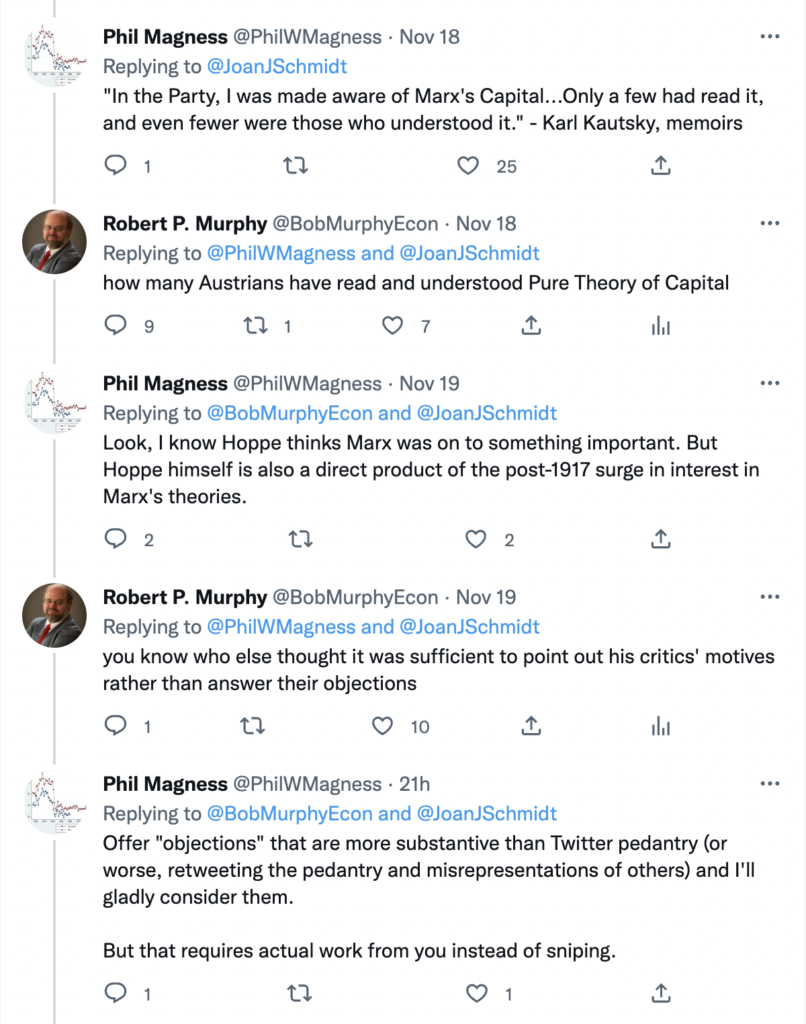







Happy Thanksgiving! Hope you had a nice day.
Also, just a brief comment without going through the details of your argument (for the moment) Lenin is to Marx as the CIA is to Orwell. Sort of. Maybe not the best analogy, but the best I can do at this time of night.
Some people read 1984 and think it’s a warning against the surveillance state.
Other people read 1984 and think it’s an instruction manual on how to build a surveillance state.
Some people read Das Kapital and think it’s a warning about exploitation of labor.
I realize this is only tangentially related to the question of how well known Marx was at various points in history.
Some people read Das Kapital and think it’s an instruction manual on how to exploit labor.
I think Lenin and Stalin saw Das Kapital as an instruction manual, not a warning.
I’m going to play the skeptic on this for a number of reasons.
Synthetic Control Method can’t ever be as good as a real control, because otherwise people would have thrown away all real controls by now. Thing is SCM is only used where a real control is unavailable, meaning everyone knows it’s the poor choice that you put up with only on sufferance.
Now the math part, explaining why SCM has problems. When you calculate a difference, that’s a first derivative … now do a difference of the differences and you are looking at a second derivative. Each derivative step amplifies the noise in the sample … thus if you have a noisy time series and you take the first derivative you essentially double the noise. This guy (first answer at the link) gives an example to demonstrate this.
https://dsp.stackexchange.com/questions/47593/why-taking-derivative-amplifies-noise
He uses 6dB to mean 2x, which is based on the power definition of dB, but not everyone prefers working in dB. Take note that the noise gain reduces as the frequency band goes down, therefore you end up also colouring your data series … in effect making it more “speckled”.
OK, now do the second derivative and you multiply it up again, for the same reason. Your final answer is thus 4x more noisy than your original measurement, in the worst case.
There are many, many papers on how to avoid this problem … but they all require some kind of filter that knows what the real signal should look like. Unfortunately, this means the researcher imposes an opinion, “I’ve decided to throw these bits away!” and now it’s hard to know which is result and which is the author’s opinion. Sometimes this built-in opinion can be quite subtle if you don’t know precisely what to look for.
Then there’s the question of what citations prove at all … I think you mention that hardly anyone cites Newton or Pythagoras or even Gauss … although they produced some of the most influential mathematical theorems in history. Hundreds of millions of students are studying Pythagoras, Newton and Gauss, but citation tells you nothing about readership. I would put forward the claim that citations only prove a controversial topic that provokes a lot of rebuttal or at least a lot of questions.
Finally there’s the whole question of what the heck this was supposed to prove.
I mean, suppose I could mathematically prove that Lee Harvey Oswald was only well known because a President died. Sure, it might conceivably be completely true that in a parallel timeline there was an attempted but failed assassination that day, and the whole thing got covered up and the public forgot. Let’s avoid the difficulty of counter-factual alternate history and presume we know with certainty that it’s true … what has that conclusion actually delivered?
Tel wrote,
That’s a good point. If this were Reddit, I would give you an upvote.
Thanks.
I get the hint that my other points are not so good.
Or perhaps you are suggesting I should investigate Reddit.
What happened to that guy Harrold? Hope nothing happened to him … seems like so many “Died Suddenly” in 2022 and a lot of channels have gone quiet. Dunno if I can face Reddit … but yeah a lot has changed in not much time
Tel wrote,
It’s not that, exactly, some of it just went over my head. Like, maybe I would get understand more if I spent more time studying it, but a lot of times when I come to this blog, it’s late at night and I don’t feel like doing complicated math stuff. Like, no offense intended, I just focused on the part of your comment I could understand while dealing with late night brain fog.
Tel wrote,
Not sure. I haven’t seen him lately either.
Tel wrote,
I’ve been having a lot of fun on Reddit lately. There’s a whole subreddit called HistoryMemes where I can post anti-forced labor memes and get lots of views and upvotes, as long as I focus on examples of forced labor from prior to 2003 (they don’t allow anything from the last 20 years on that subreddit). Plus I spent some time expounding on the evils of forced labor on the AskHistorians subreddit. I like helping people learn about the evils of forced labor, so this is fun for me.
Here’s four of my anti forced labor memes:
https://www.reddit.com/r/HistoryMemes/comments/10gmekn/in_1847_brazil_dr_david_gomes_jardim_published_a/
reddit [dot] com/r/HistoryMemes/comments/10hzdey/in_brazil_some_people_escaped_from_chattel/
reddit [dot] com/r/HistoryMemes/comments/10opmx3/the_ancient_egyptian_ruling_class_subjected/
reddit [dot] com/r/HistoryMemes/comments/10pkzqf/under_ramesses_ii_half_the_workers_forced_to_go/
There’s also two about the Viking forced labor trade, but the URLs contain a word that will get stuck in the moderation queue.
Some of those links didn’t format well…
https://www.reddit.com/r/HistoryMemes/comments/10hzdey/in_brazil_some_people_escaped_from_chattel/
One about Egyptian forced labor
https://www.reddit.com/r/HistoryMemes/comments/10opmx3/the_ancient_egyptian_ruling_class_subjected/
Another one about Egyptian forced labor
https://www.reddit.com/r/HistoryMemes/comments/10pkzqf/under_ramesses_ii_half_the_workers_forced_to_go/
If you enter the following into Google:
site:reddit.com Amazing-Barracuda496 “viking trading was often”
then you should be able to find my two memes about the Viking forced labor trade.